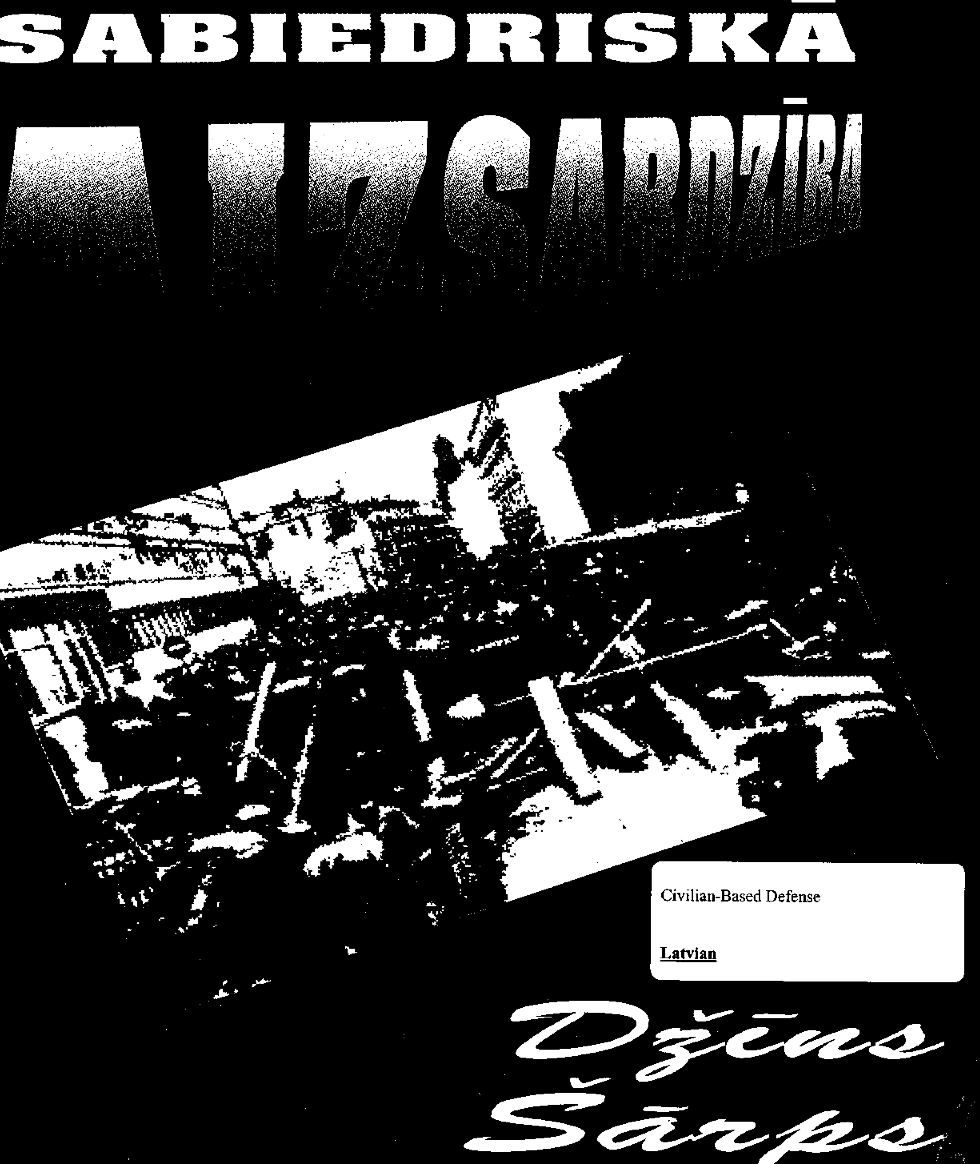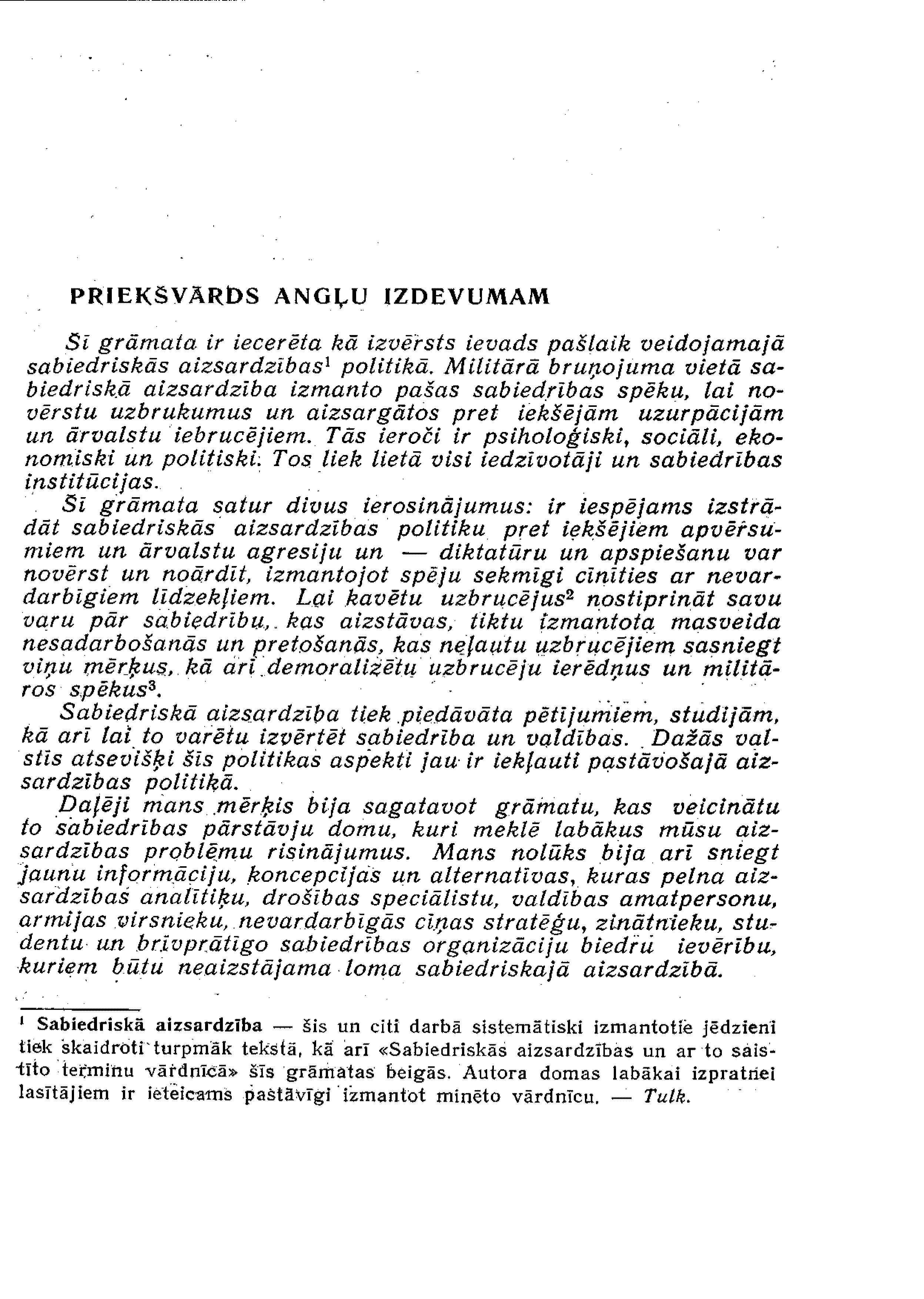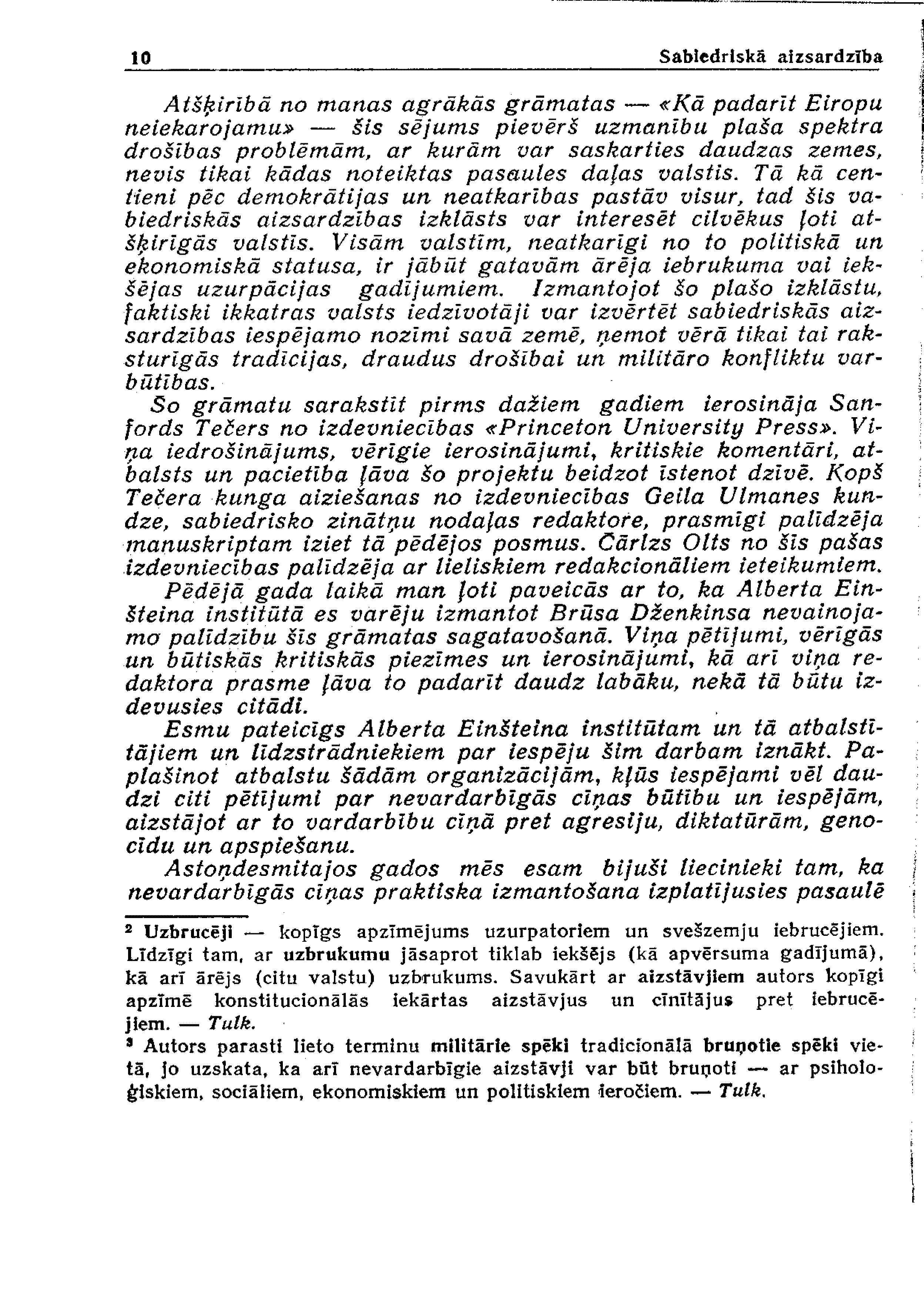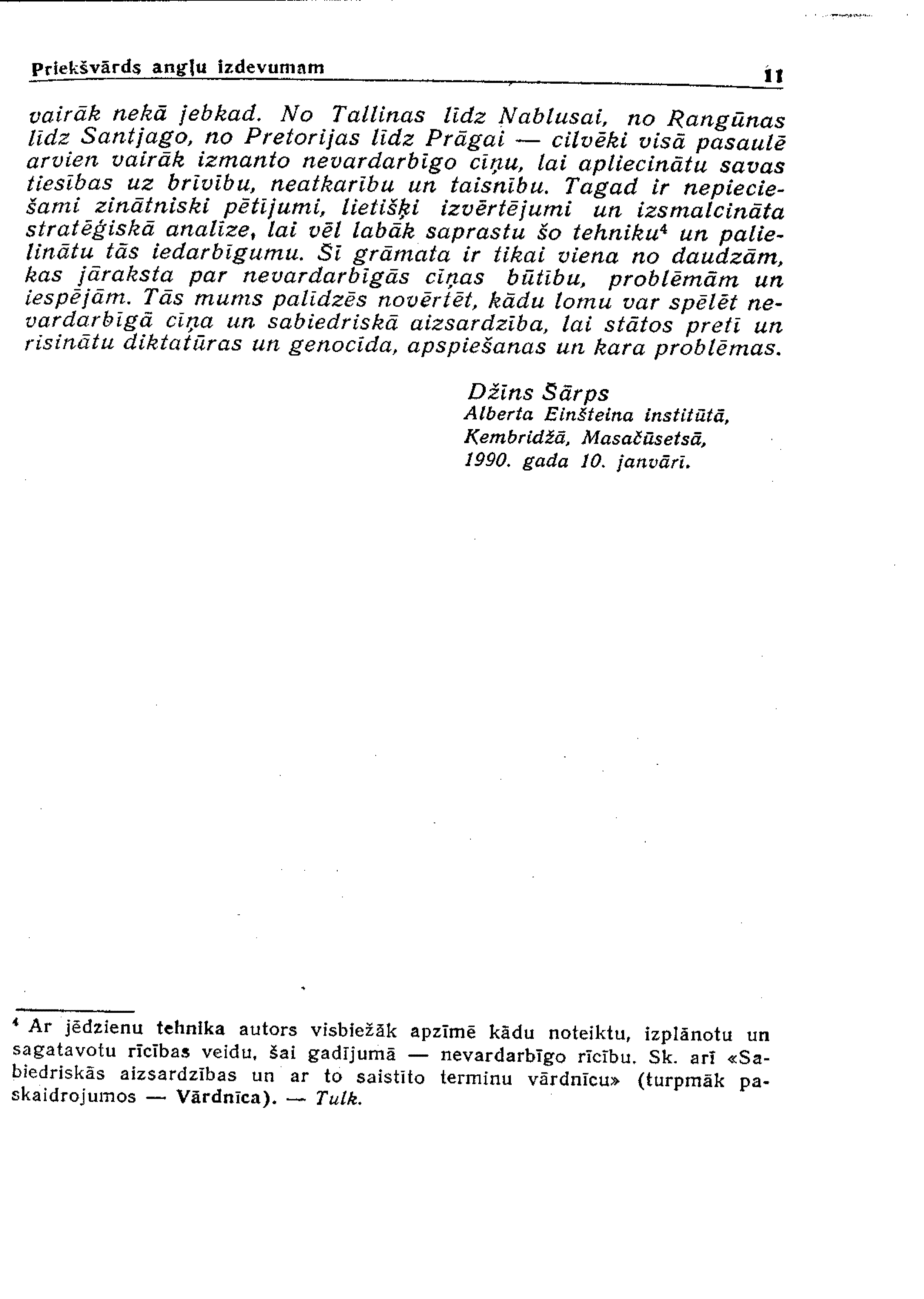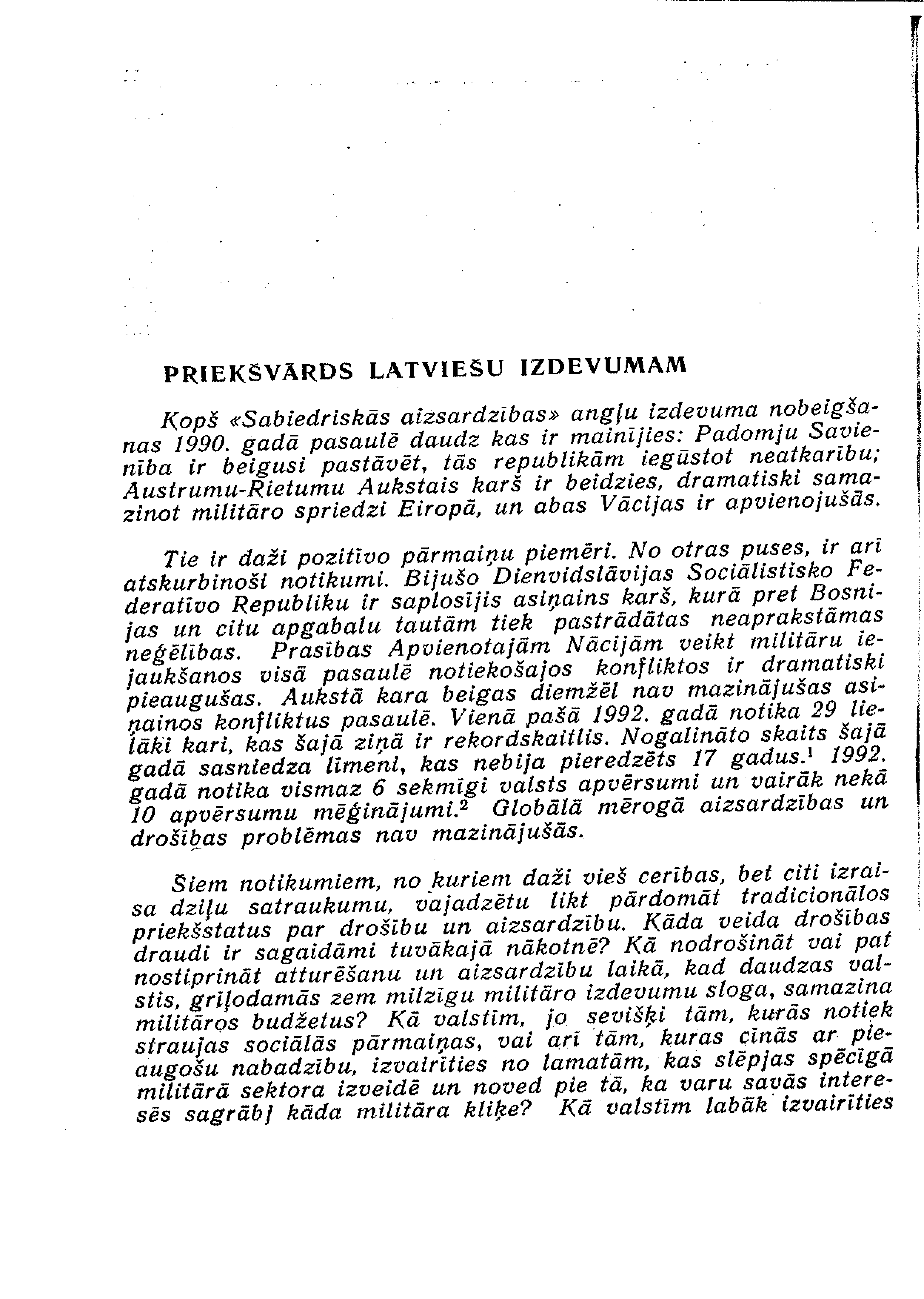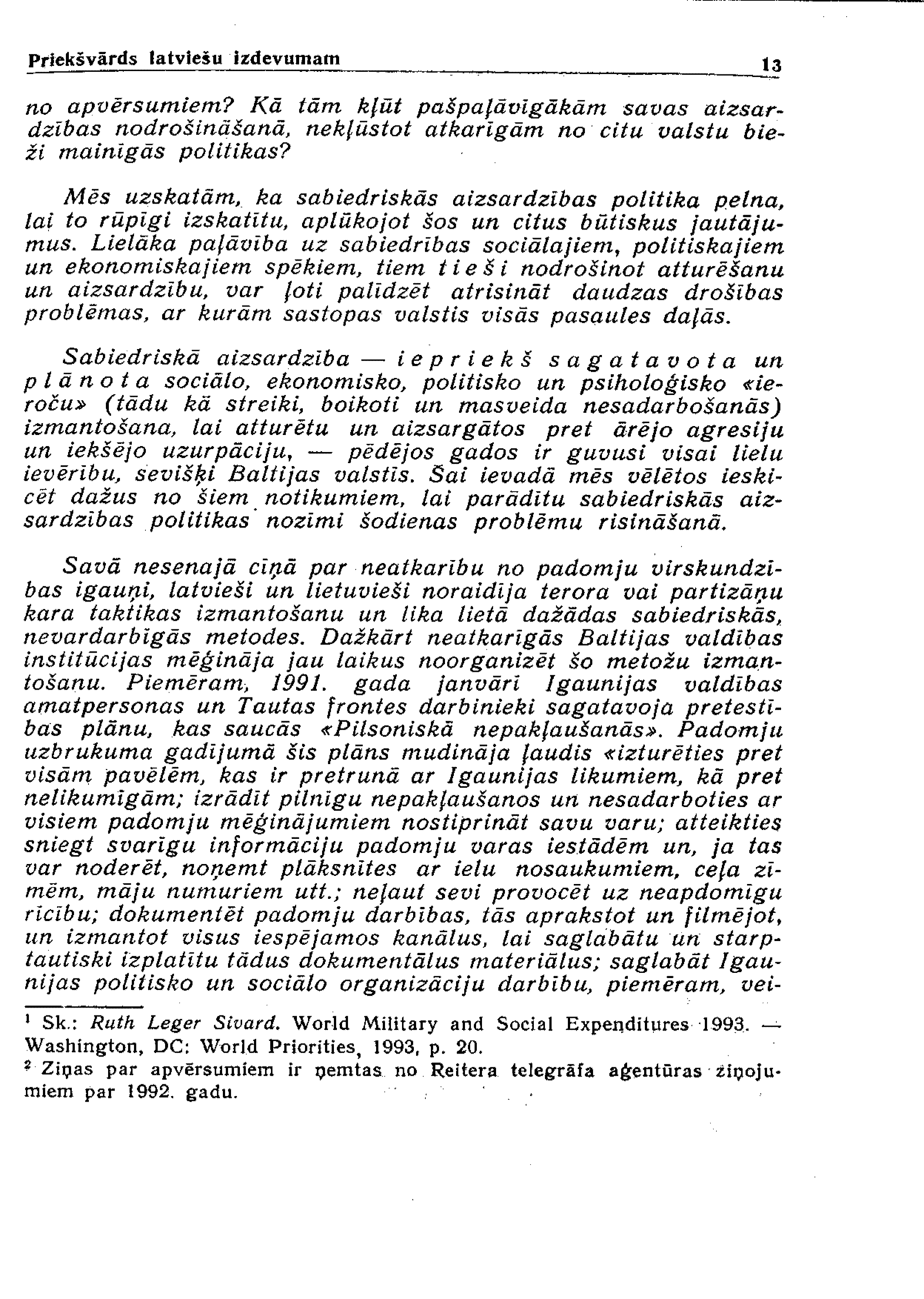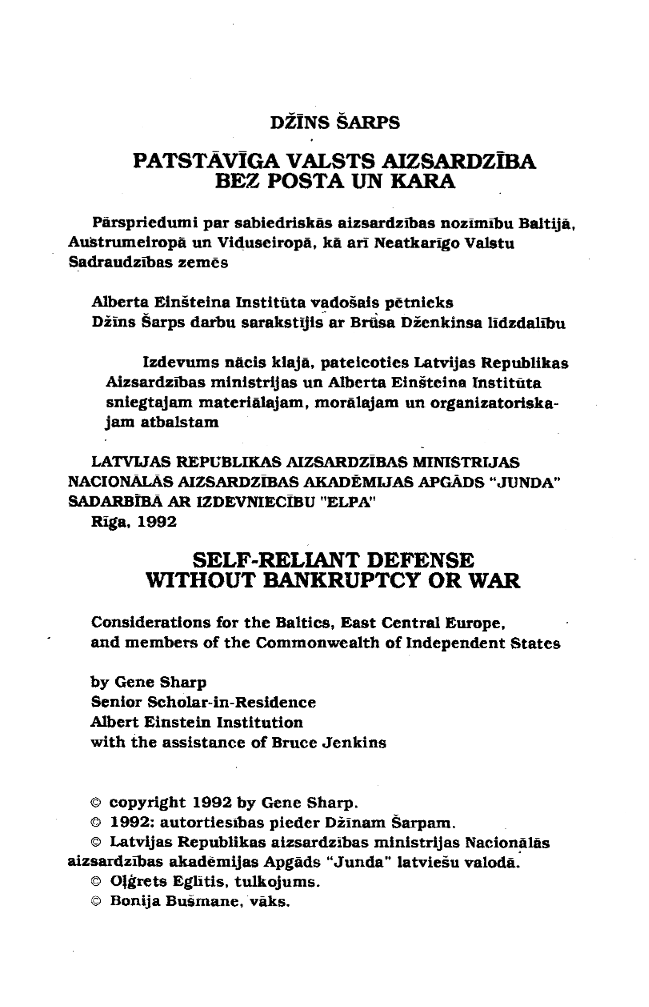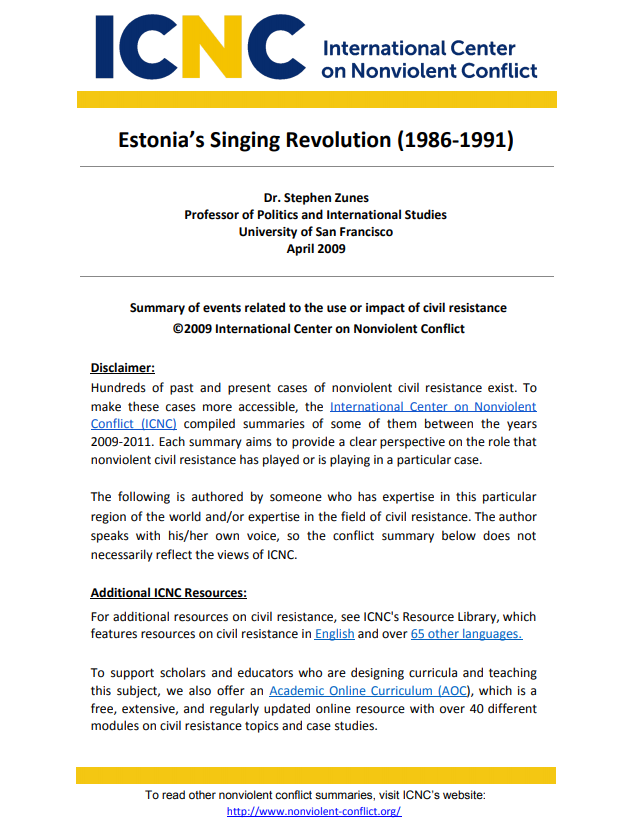Sabiedriskā Aizsardzība: Postmilitāra Ieroču Sistēma
“Two things are certain about the future of politics and international relations,” writes Gene Sharp. “Conflict is inevitable, and effective defense will be required against internal usurpers and international aggressors.” The crucial issue, then, is how to effectively deter and defend against such attacks while adhering to the principles of nonviolence. Enter Dr. Sharp—a leading pioneer in the development of civilian-based defense, who has been called the “Clausewitz of nonviolent warfare”—and his book, “Civilian-Based Defense.” This book applies the lessons of decades of study on nonviolent struggle to the problems of deterrence and defense. For the general public and policymakers, it explains how massive and selective noncooperation and defiance by a country’s population and institutions can deny attackers their objectives without the dangers of modern war.
Among its discussed topics are several classic cases of improvised nonviolent noncooperation and defiance against occupations and coups. Sharp also explores the strategy needed to conduct successful prepared civilian-based defense, as well as the ways “transarmament”–or the changeover from military defense systems–could be conducted. He also surveys the efforts of a few European countries to integrate small nonviolent resistance components into their predominantly military defense policies, focusing on the practicalities of the further development of a “nonviolent weapons system.”
Princeton University Press, 1990
Translation: Junda, 1995
Grāmatu sarakstīt palīdzējis Brūss Dzenkinss
ISBN: 9984-01-011-2
Material on this page appears with permission of The Albert Einstein Institution (AEI). For questions regarding translation, reproduction, or purchase, please contact AEI.
